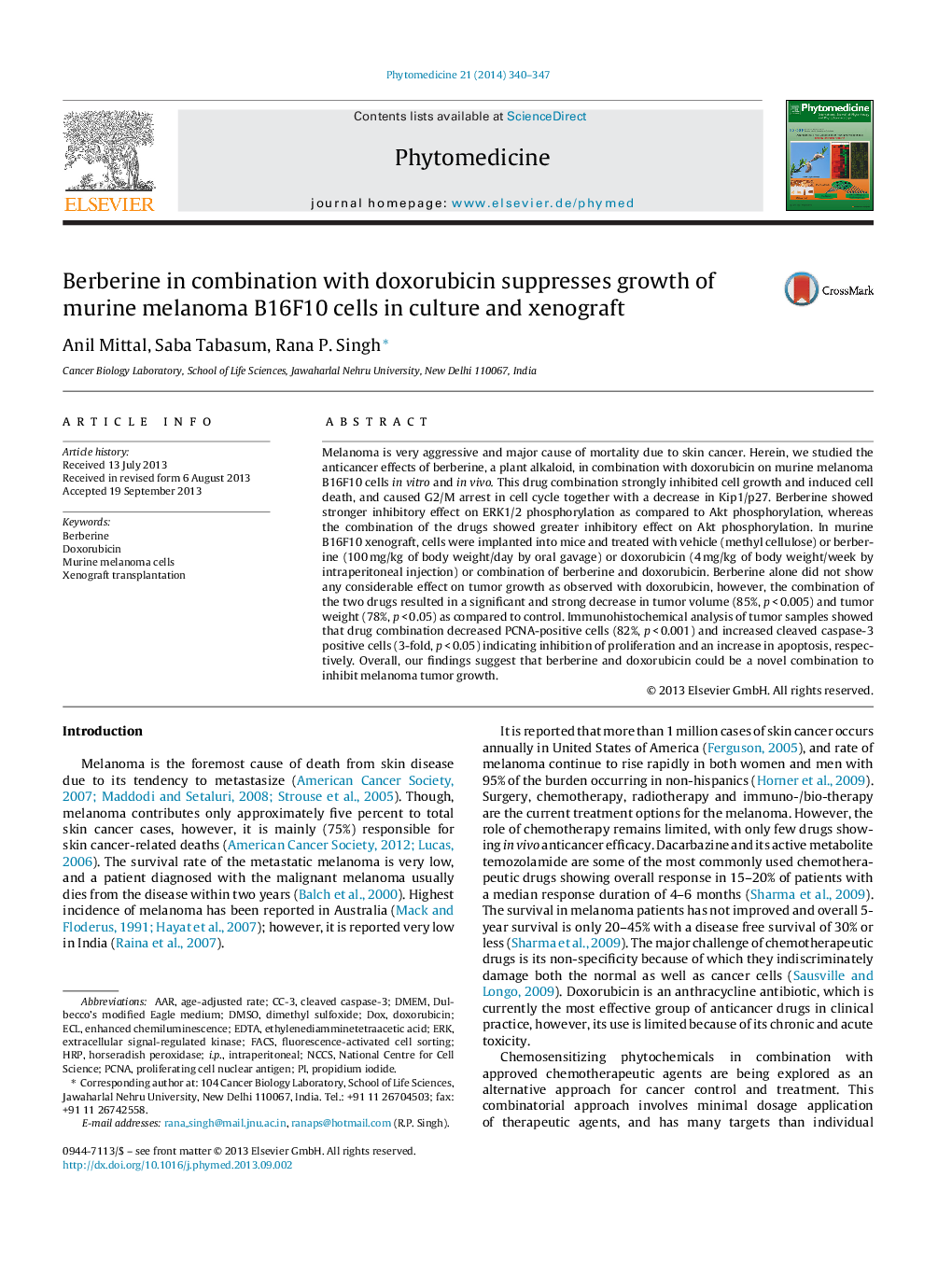| Article ID | Journal | Published Year | Pages | File Type |
|---|---|---|---|---|
| 2496551 | Phytomedicine | 2014 | 8 Pages |
Melanoma is very aggressive and major cause of mortality due to skin cancer. Herein, we studied the anticancer effects of berberine, a plant alkaloid, in combination with doxorubicin on murine melanoma B16F10 cells in vitro and in vivo. This drug combination strongly inhibited cell growth and induced cell death, and caused G2/M arrest in cell cycle together with a decrease in Kip1/p27. Berberine showed stronger inhibitory effect on ERK1/2 phosphorylation as compared to Akt phosphorylation, whereas the combination of the drugs showed greater inhibitory effect on Akt phosphorylation. In murine B16F10 xenograft, cells were implanted into mice and treated with vehicle (methyl cellulose) or berberine (100 mg/kg of body weight/day by oral gavage) or doxorubicin (4 mg/kg of body weight/week by intraperitoneal injection) or combination of berberine and doxorubicin. Berberine alone did not show any considerable effect on tumor growth as observed with doxorubicin, however, the combination of the two drugs resulted in a significant and strong decrease in tumor volume (85%, p < 0.005) and tumor weight (78%, p < 0.05) as compared to control. Immunohistochemical analysis of tumor samples showed that drug combination decreased PCNA-positive cells (82%, p < 0.001) and increased cleaved caspase-3 positive cells (3-fold, p < 0.05) indicating inhibition of proliferation and an increase in apoptosis, respectively. Overall, our findings suggest that berberine and doxorubicin could be a novel combination to inhibit melanoma tumor growth.
